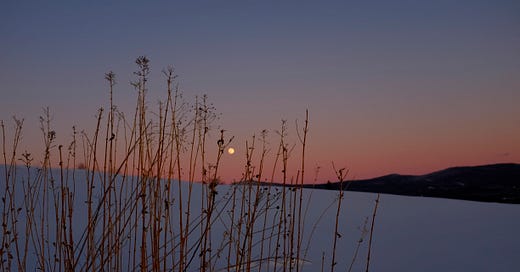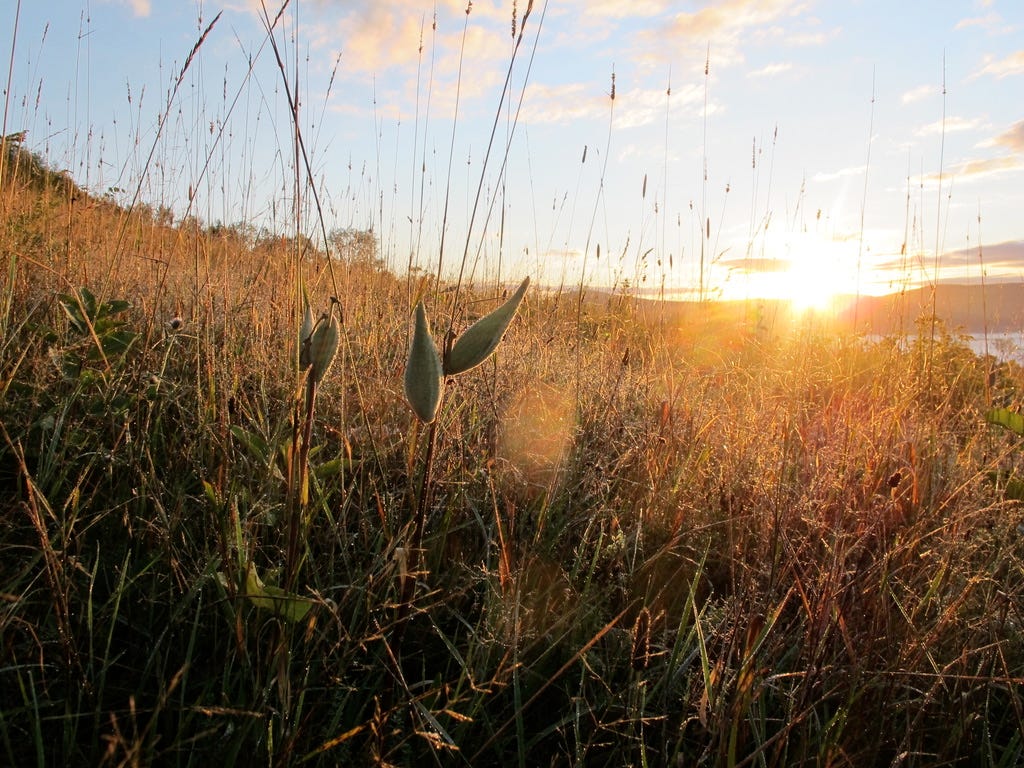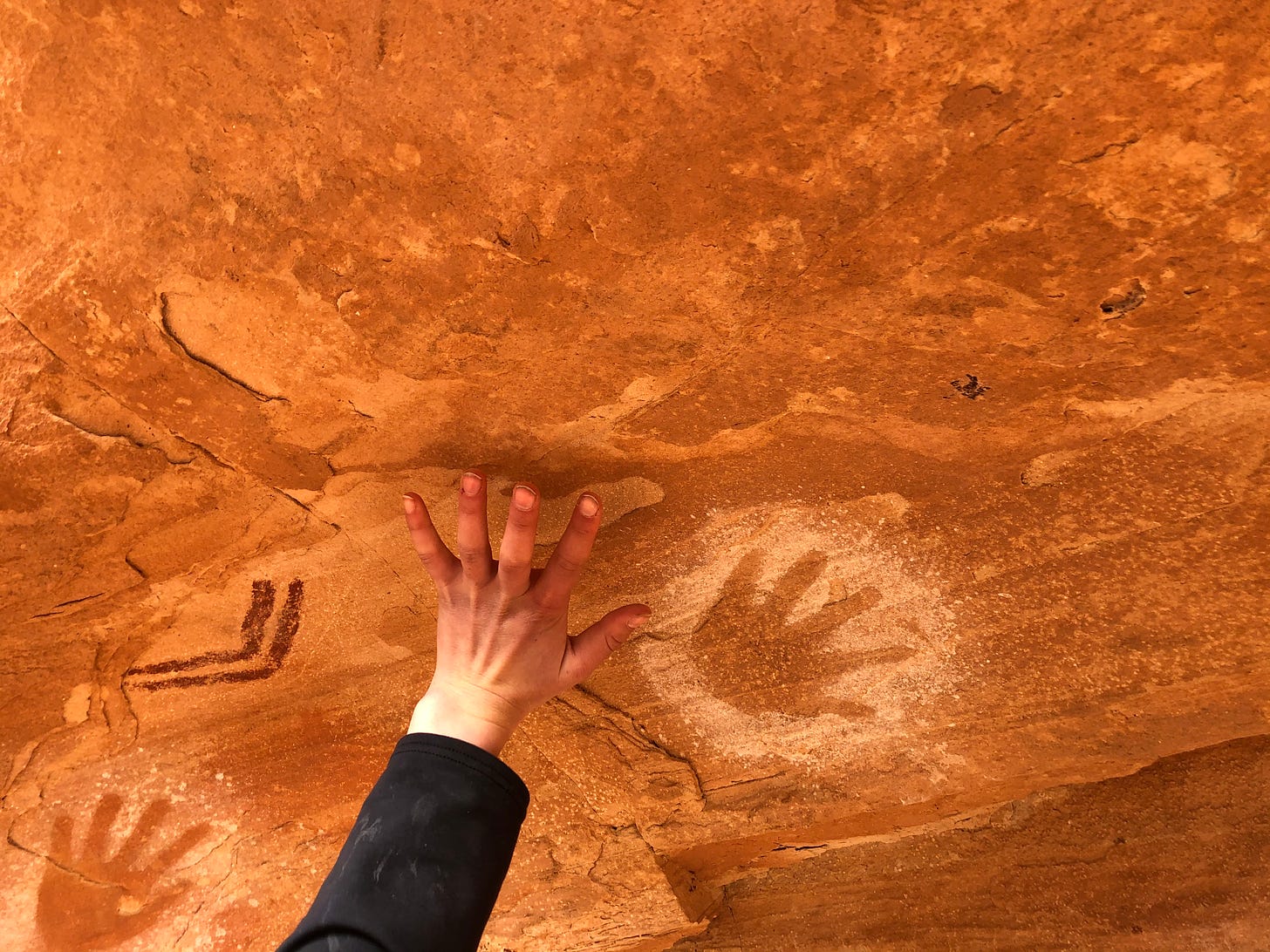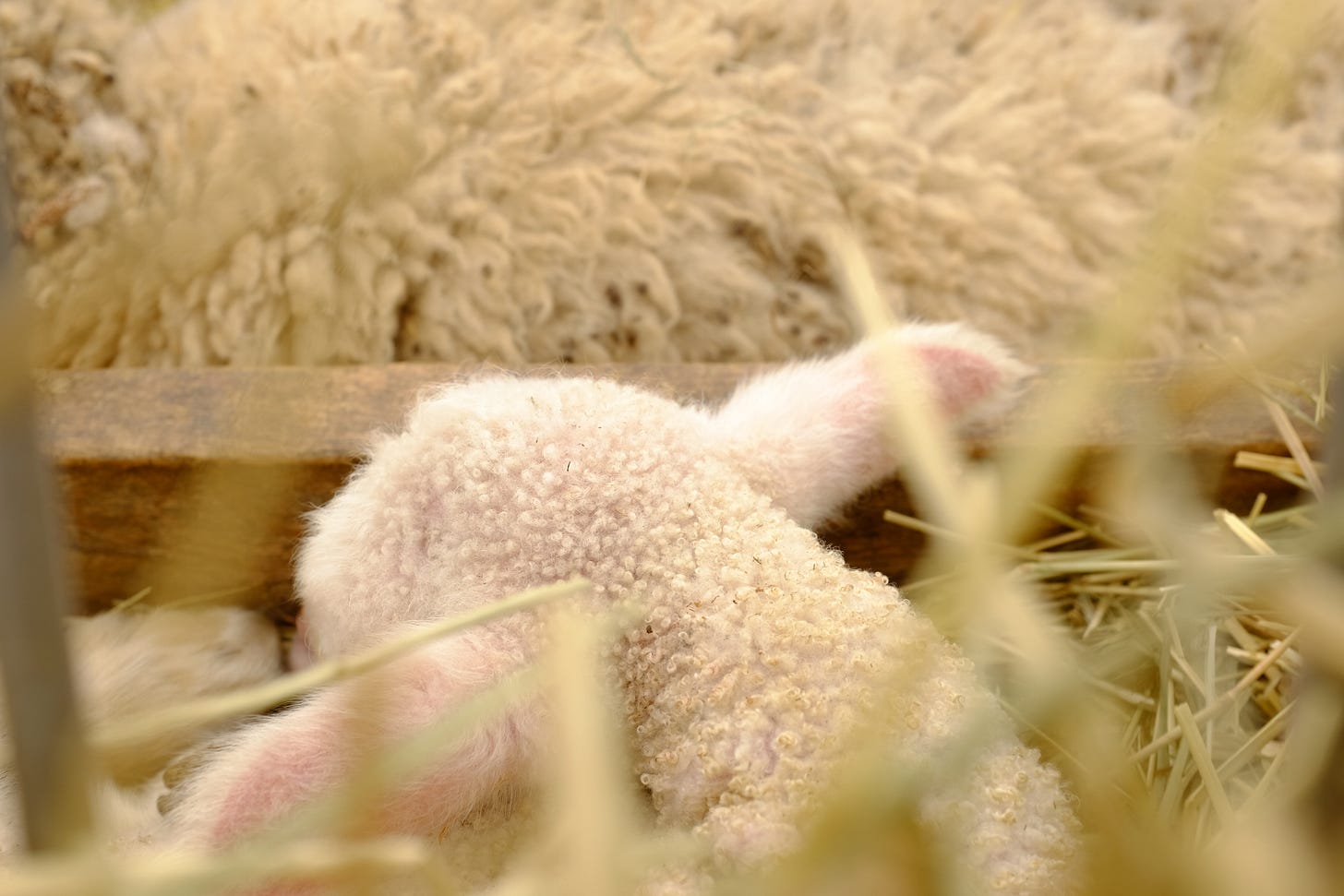I'm a seasonal writer. Rather like a seasonal fire fighter. There's a critical time to do the work, and for me, it's nearly over. I write from November to April, and then my other seasonal life takes over. My writing has to dovetail with farming, appropriately so, since my writing is also about farming, at least for now. This is a long-winded way of saying that I must finish my first draft and get it to my editor in less than two weeks, before the lambs start coming. Lambs don’t extend their deadlines.
The arrival of lambs signals the beginning of spring madness, and the end of sitting down.
Delivering lambs will keep me up all night but it will give me a break from delivering words. I'll be too tired to think, which can feel like rest. Which reminds me of a favorite line from a recently discovered new favorite writer, Bayo Akomolafe, "falling can feel like flying, without the tyranny of coordinates."
Writing isn’t hard work in the way that firefighting is, or farming can be. But firefighting is a useful analogy, come to think of it. You start something - a story, an idea, a paragraph, a chapter - and then suddenly it gets out of control and you have to fight it back, ditch the perimeter, eliminate brush, smother flames. This is the phase of the book process I've been in for the past three months—revising—and I'm starting to feel exhausted and also worried that the book’s landscape after the fire is damaged beyond repair. Has it beaten me? Did the whole forest burn? And where are the rains? Will the seedbed regenerate after some rest? The seedbed in this metaphor, I think, though I'm starting to lose it, must be my mind. Sometimes there is nothing more fortifying for a piece of writing than to put it aside for a while and let it recover from your torture.
I've come around to agreeing wholeheartedly with Zadie Smith, who says that writing is all about control. Firefighting, in other words. Planting tulips is creative, she says, but not writing. "Creative" is the wrong word for what we do. When I first read this in her book Intimations, a part of me protested loudly, but then I read on, and I saw exactly what she meant.
"Experience - mystifying, overwhelming, conscious, subconscious - rolls over everybody. We try to adapt, to learn, to accommodate, sometimes resisting, other times submitting, to whatever confronts us. But writers go further: they take this rather shapeless bewilderment and pour it into a mold of their own devising. Writing is all resistance."
These sentences shaped a new idea and placed it on the shelf of my mind, and I hold it now. If writing is all about control, then reading is all about being creative. Reading is where the shape of the thing happens inside you; the writer hands you the clay she has gathered from her world, and you mold something of your own with your imagination. In this way, writing and reading hand-in-hand are an eternal bucket line that is passed forever, splashing onto the ground of our lives and being scooped up again by the next person, shape-shifting, moving.
Peter and Wren always tell me, when I'm having a day where I'm afraid to write, to do it for myself, to not worry what anyone else will think of my prose. Have no audience, have no expectations. But I do this for you, dear readers; writing without reading is just a block of clay, just one attempt at molding experience. How much more interesting and beautiful it will be when it has passed through your hands, shaped by your imagination, and on and on! Even with these posts, what I love most are the beautiful emails from readers sharing their own moments with their fathers, or books they love, reminding me of why I do this. A dear penpal, Jasmine, wrote to me about her grandmother, who like my father was a university professor, "I spent a lot of time with her library while she was sick, and the visceral smell of old pages and her dying came right back with your words," she said. I cannot tell you how happy it made me to share such threads with this sister.
A piece of writing is not meant to simply exist. It is meant to stir, to spark, to simmer. A book is a verb, not a noun. My job is to try and tame the chaos of my mind enough to leave you with something small and bright, something to carry with you, safely, in damp moss, until you make your own fire. If I can do this, I will have succeeded. Maybe you’ll know what I'm trying to say.
I'm learning a lot in writing The Salt Stones. The book is, partly, just for me. By putting down words, then dousing them, by finding deeper truths and cutting away flashy ones, I have grappled with what it means to raise a daughter and to be a daughter. I have written my love song to nature, the land, and the sheep who have been my Merlins (think wizard, not bird). I have made some sense of my bewilderment and grief about my mother's dementia, and I am learning how to say goodbye to so many things. In that way, the writing has been useful for me, but I hope it will be more than that. I hope it will help you, too, when you read it, to make sense of your own bewilderment on this earth.
Tomorrow, I'm going up to Maine to give my manuscript a rest. I'm going to hike into a yurt that Peter and I built with many friends and our dear mentor, Bill Coperthwaite, way Down East. (We wrote that story in A Man Apart: Bill Copertwaite's radical experiment in living.) I'll be stopping to see my old pal, Tom Wessels, on my way. Tom's brilliant book, Reading the Forested Landscape, taught me how to uncover history in the woods and fields of New England. Talk about a book that sparked a change! Working on that book with Tom as a young editor, I fell in love with the process of making books, not just reading them.
Tom told me about all the bad wind storms and super tides on the coast of Maine this winter and said to expect a lot of blowdowns hiking into our yurt. There's no road or power out to the peninsula. In winter, there's barely a trail. I'll assess the damage. I'll see what can be done.
And then, regardless, the birthing time will come.








Beautifully metaphors, reflections on practice, and honoring the ebb and flow of writing. I am here in Maine, and happy to hear that you are adventuring into the wild for a bit of calm. This coast is especially wild and inviting all at once right now. If ever you want to join a Zoom writing/art studio to enliven your writing spirit, I offer them and you can find the info here: https://www.dianamullins.com/#/writingsalons/
lovely and so thought provoking. I feel so grateful you are sharing your writing Helen!